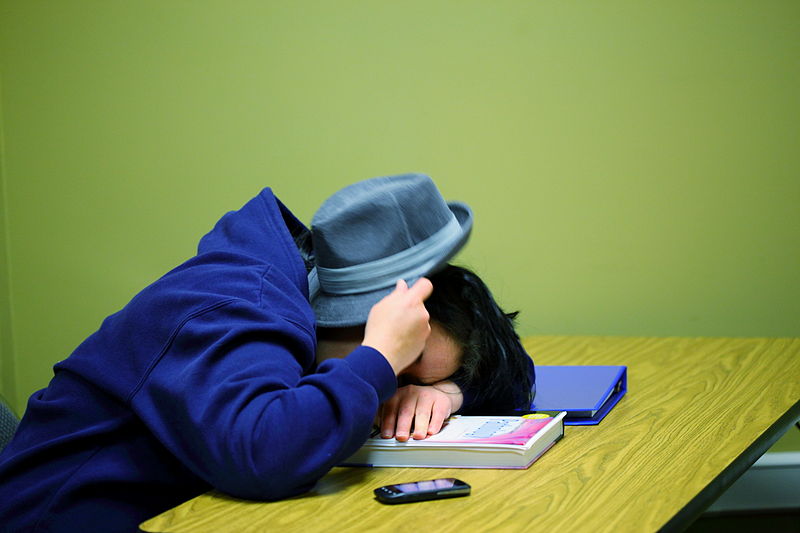Students can have a hard time waking up in the morning and even tougher time going back to sleep after summer break ends. This is quite common because sleep patterns can be disrupted due to a flexible timing during the summer. Social media, TV, and cell phones, can contribute to a poor night’s sleep. All these distractions sets body clocks to a schedule that is not suitable for students going back to school.
Poor sleep patterns can interfere with one’s health. Some of the impacts lack of sleep can have on one’s health are:
- A UBC study shows that, “lack of sleep has a significant impact on brain function, health, safety, and longevity”. READ MORE HERE: https://students.ubc.ca/health-wellness/self-help/sleep;
- The brain needs sleep to function every day, and with lack of sleep we are not able to give the brain it’s food or oxygen to help concentrate on school work. Lack of sleep can also cause long term impacts on health such as weaker immune systems, mood swings, imbalanced mental and emotional state, or even hallucinations;
- Sleep can increase our chances of having diseases such as diabetes, high blood pressure, and obesity;
- Lack of sleep increases our chances of having type 2 diabetes;
- We may feel fatigued throughout the day if the body is deprived from a nice rest;
- The more we stop our bodies from the comfort of sleep, the more our social relationships may suffer because of our cranky and irregular mood swings.
There is, however, a way to overcome this problem before it starts to impact our body negatively. There are tips and different ways to manage a sleep schedule and get better sleep at night. These tips will help get a good night sleep and help maintain a healthy body that is needed to stay healthy and alert:
- Get at least 7-9 hours of sleep every night. This is a normal amount of sleep for a person to function daily;
- Have a bedtime schedule and follow it. Wake up on the same time every single day, including the weekends, to practice your internal time clock;
- Keep things that can distract or interfere with your sleep routine out of your room at night. This can include technology, cell phones, and school text books. A room free from such distractions, will help with overall sleep quality;
- Exercise regularly and stay in shape. Daily exercise can help fall you asleep a lot faster. However, avoid exercising before going to bed;
- Avoid drinks or foods that contain caffeine before going to bed because they may interfere with our sleep schedule.
Benefits of sleeping well are countless and here are a few:
- A healthy immune system! When you get enough sleep, it boosts immunity and the immune system becomes stronger to fight pathogens and flu to keep the body safe and protected from germs and diseases;
- With a healthy amount of sleep, concentrating will be much easier to do at school! Students are most likely to stay alert for the entire school day and will intake information much better. A well rested brain, will help your student become a successful learners;
- A healthy sleep means more balanced self! This does not necessarily mean you will feel happy throughout the whole day, but you may will feel less cranky and tired and more active and awake.
These tips can help students receive the sleep they need for their health, mental development, and help them get back to a healthy school routine that will let them function in the classroom. Sleep is vital for young minds that are still growing and they need as much sleep to grow, become successful learners, and leader of tomorrow!
For more information on this topic, please visit these websites and learn more about how important sleep is for young minds.
https://students.ubc.ca/health-wellness/self-help/sleep
https://sleepfoundation.org/sleep-topics/teens-and-sleep
http://www.healthline.com/health/sleep-deprivation/effects-on-body
http://www.cbc.ca/beta/news/health/school-sleep-1.3745125
Written by Jasmine Chawla, Grade 12
North Delta Secondary School

